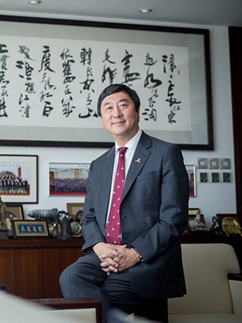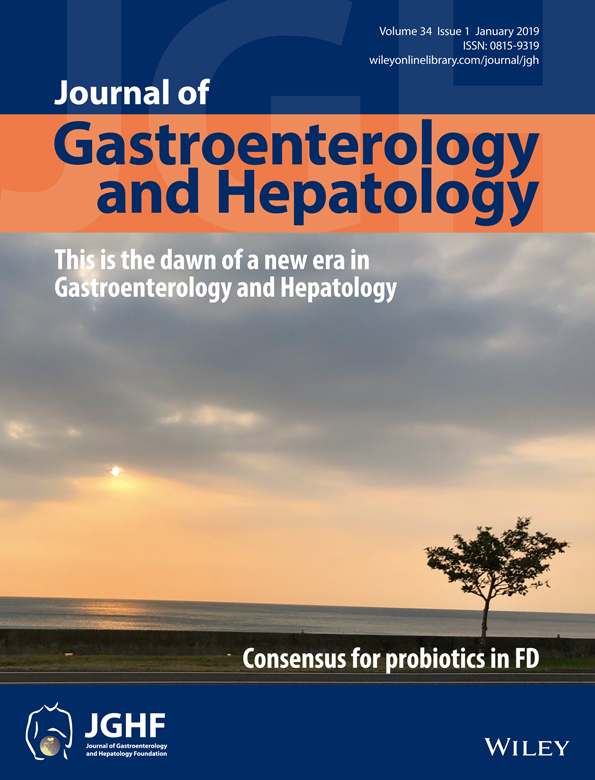Renaissance in gastroenterology and hepatology
Today is the most exciting time in Gastroenterology and Hepatology. Indeed, I see this as the “Renaissance” of Gastroenterology and Hepatology.
Not so long ago, gastroenterologists and hepatologists have only a short list of potent drugs in their hands: acid suppressing agents (histamine-2 blockers and proton pump inhibitors) for peptic ulcer disease and gastro-esophageal reflux disease; corticosteroid and sulphasalazine for inflammatory bowel diseases, interferon and ribavirin for viral hepatitis; and a handful fairly toxic chemotherapeutic agents for colorectal, gastro-esophageal and pancreatic cancers, and that's about all. Today, to this list of armamentaria, we have added P-CAB which give much quicker relief of acid symptoms, a whole spectrum of biologics from anti-TNF antibodies to anti-integrin, anti-interleukins and JAK inhibitors giving effective control of inflammatory bowel diseases, powerful direct anti-viral agents which cure HCV infection in just a matter of weeks, and an explosion of target therapies and check-point inhibitors giving impressive therapeutic effects for the treatment of GI and liver cancers. Diagnosis and treatment of GI and liver diseases is advancing in such a pace that most of textbook information are obsolete.
Furthermore, we start to realize that there are trillions of microbes in our gut which are largely responsible for our health, as well as our illnesses. Change of microbiome in our body and lost of a balanced microbial ecology, or so-called dysbiosis, is now implicated in a variety of gastrointestinal and hepatic conditions including diarrhea, inflammatory bowel disease, functional disorders of the gut, gastrointestinal cancers and even non-alcoholic fatty liver disease and complications of portal hypertension. Numerous efforts and enthusiasm have been gathered into basic and translational research of microbiome. This is beginning to revolutionize our management of gut and liver disorders. For several decades now that we have been focusing on the human genome and its relationship with various kind of diseases. We have, for many years, ignored this “forgotten organ” in our body which is now redefining health and diseases of mankind. The meaning of personalized medicine may have to expand from merely analyzing the genomics of the host in diseases, to exploring the interactions between the host genomes and the microbiome staying in our bodies.1 The one-size-fit-all medicine is outdated.
On the other front, artificial intelligence (AI) is no longer science fictions and fantasies. The technology is gradually creeping into our clinic and endoscopy suites. Computer-assisted image analysis can now be used in CT, MR as well as endoscopy. A system of convolutional neural network (CNN) called deep learning has been reported to process colonoscopy images at high speed in real time, identifying polyps with an accuracy of over 95%.2 Similarly, computer assisted-endoscopy is now under development for the diagnosis of gastric cancer and pre-cancers lesions. Beside image analysis, AI and data mining also permits the development of algorithms or models that predict the development of diseases such as metabolic syndrome and cancers. Before long, a machine can help to predict the development of non-alcoholic fatty liver disease based on simple physical parameters (BMI, abdominal girth, physical activities) and biochemical data (ALT, AST, LDH etc.) to create a pattern recognized by the computer helping the hepatologist to identify a high-risk patient. Computer vision, deep learning, machine learning and AI will open up new horizons in clinical management of gastrointestinal and hepatic disorders. Technological advancements may change our practice in a speed faster than we anticipate.3 Clinicians need to keep a close eye on these developments.
Back to today's medicine, there are many cross-discipline knowledge and advancement that we, gastroenterologists and hepatologists, should be aware. The interaction of microbiome, gut hormone in diabetes, obesity is one of the best examples. Already, fecal material transplantation, surgery or even endoscopy are tested to be used in the treatment of type-2 diabetes, obesity and their complications. Gastroenterologists and cardiologists/neurologists should work together to offer the best post-endoscopy care to patients (with atrial fibrillation or coronary stenting) taking anti-coagulants or anti-platelet agents that develop bleeding complications. The use of biologics in autoimmune conditions by rheumatologists and immunologists can provide valuable information and experience for us to use these drugs in gastrointestinal disorders. With the opening up of the black-box of the neurological system and the understanding of the brain-gut axis, we can work with neurologists/psychiatrists in providing care to many of our patients with function GI disorders. Frequent interactions between gastroenterologists/hepatologists with other specialties will benefit clinical outcome our patients.
In view of all these changes, we have gathered a new team of editors in the Journal of Gastroenterology and Hepatology. There will be biomedical engineers and data scientists joining us. Experts in microbiome research and bioinformatics will share with us their insight in this journal. We will also create opportunities to work with cardiologists, neurologists, psychiatrists and experts in other fields to discuss guidelines and consensus in cross-disciplinary areas. I am honored to be invited to lead the editors team starting from this month. My team and I would like to extend our heartfelt gratitude to Prof. M Watanabe for his immense contributions in the Journal for the past six years.As more and more groundbreaking basic research, clinical trials and guideline/consensus are coming out from the Asia-Pacific region, as disease epidemiology is changing rapidly and Asia offering unique opportunities to study the evolution of these conditions, as the research funding and research talents have been accumulating in Asia-Pacific countries, I truly believe that the Journal should be in a leading position in the field and obtain worldwide recognition and appreciations. Let us celebrate the Renaissance of Gastroenterology and Hepatology together.





